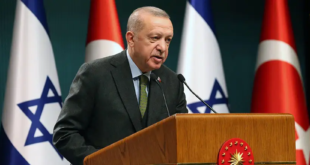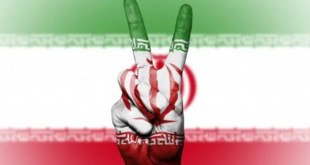OCCUPIED JERUSALEM (Reuters) — Shimon Peres was ousted as Israel’s Labour Party leader on Thursday by a trade union chief who vowed to quit Prime Minister Ariel Sharon’s ruling coalition and usher in early elections.
After a leadership contest that shook up Israel’s political landscape, Amir Peretz, 53, said he would press Sharon to set a date for a national ballot, advancing an election not due until November 2006. Israel Radio said the two would meet on Sunday.
Largely unknown on the international stage, Peretz was declared the winner of a rank-and-file vote by a 42 to 40 per cent margin over Peres, Labour’s elder statesman who has won a Nobel Peace Prize but never a general election.
Peretz’s victory appeared to reflect support for his call for a return to Labour’s socialist roots and disillusionment with Peres, 82, for failing to revive Israel’s once-dominant party after its crushing defeat in the 2003 general elections.
Peretz, a Moroccan immigrant whose father toiled in a kibbutz factory, takes the helm of centre-left Labour, long a bastion of the European Jewish elite.
“I expected a better evening,†a glum Peres confessed at a news conference, clearly stunned at the election’s outcome.
Polls had predicted that Peres, Israel’s vice prime minister and an architect in the 1990s of now-tattered peace deals with the Palestinians, would coast to victory.
Political upheaval in Israel is expected to keep diplomacy with the Palestinians, already on hold after a surge of violence following Israel’s Gaza pullout, in a deep freeze for now.
Amid chants of “the next prime minister†from supporters, Peretz, head of Israel’s Histadrut trade union federation, said: “This can truly be Israel’s most important hour.†Peretz pledged to pull the party out of Sharon’s coalition over free-market reforms and spending cuts he said have worsened the plight of Israel’s poor.
Sharon has relied on Labour’s parliamentary support to prop up his government, already shaky because of divisions in his rightist Likud over Israel’s Gaza withdrawal in September.
Gideon Saar, parliamentary whip for Likud, called Peretz “irresponsible, very extreme.â€
Peretz’s win pushed down the Israeli shekel and Tel Aviv stocks in Thursday trading. Trying to calm nervous financial markets and appeal to mainstream Israelis, Peretz declared: “I don’t intend to hurt the free market or competition.â€
Coalition at risk
He promised, however, to champion the poor, saying: “Labour can only become an alternative if it returns to itself.†But Labour, the party that founded the Jewish state in 1948 and later became the standard-bearer for peacemaking, is now weaker than ever as voters hardened by a 5-year Palestinian uprising have abandoned it for Sharon’s tough military approach.
The next election will pit Peretz, untested in national politics, against a prime minister with high approval ratings.
Peretz called on Peres, who has not indicated his future plans, to stand beside him and work together within the party.
Peres, a long-time personal friend of Sharon despite political differences, had made clear he wanted to keep the coalition intact even as the prime minister faced rebellious Likud lawmakers trying to punish him for the Gaza withdrawal.
He took Labour into Sharon’s government last year as junior partner to help carry out Israel’s first removal of settlements from occupied land Palestinians want for a state.
Twice prime minister — in a power-sharing deal in the 1980s and as successor to the slain Yitzhak Rabin in 1995 — Peres has lost in five attempts to win a general election outright.
His latest defeat could spell the end of a six-decade political career. He challenged the results, alleging voting irregularities, but party officials rejected the accusation.
Peretz shares many of Peres’s dovish views, but his socio-economic platform seemed to resonate strongest with Labour members who believe the government’s economic policies have gone too far in widening the gap between rich and poor.
Labour supporters hope he can breathe new life into the party but with its parliamentary strength at a historic low it will be an uphill struggle to make it electable once more.
Peretz, who sports a walrus moustache, portrays himself as a populist who can help Labour broaden its appeal to largely underprivileged Jews of Middle Eastern descent.
 Eurasia Press & News
Eurasia Press & News



